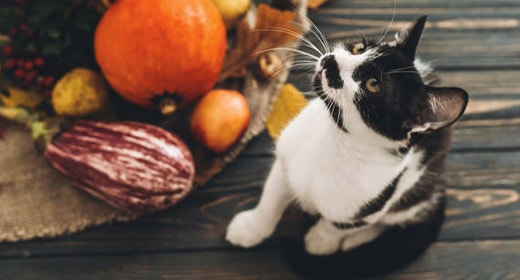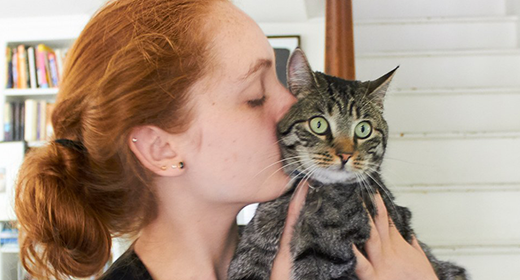

If you are considering an all-natural, holistic, or organic kitten food, here are some facts you may not be aware of. Currently the pet food market is experiencing a push toward “all-natural,” “holistic,” and “organic,” the significance of which is still to be determined. The question becomes, is there an actual benefit to an “all-natural,” “holistic,” or “organic” diet?
AAFCO defines “natural” as “…derived solely from plant, animal, or mined sources… not containing any additives or processing aids that are chemically synthetic except in amounts as might occur unavoidably in good manufacturing practices.”
Loosely interpreted, this definition could include a range of “natural” products, including tobacco or any other naturally grown drug or substance.
None of these “all-natural” products are considered healthy additives for your kitten. So it is apparent that regulatory work is needed to define the true beneficial use of all-natural. Also noteworthy is the fact that nowhere within the definition are plant and animal by-products excluded. Not only are they “natural,” but they contribute valuable nutrients as ingredients in human and animal foods.
The term “holistic” kitten food is not distinctly defined by any of the regulatory agencies as a classification for food. This is particularly noteworthy in kitten food, because all diets sold commercially must be “Complete and Balanced” for a designated age or activity level. Or in other words, be a “holistic” dietary approach.
Organic kitten food is labeled “organic” by a government-approved certifier who inspects the farm where the food is grown to make sure the farmer is following all the rules necessary to meet USDA organic standards. Whether organic kitten food provides any additional safety or nutritional value is still being debated by experts. Even the USDA refuses to take a position. It is also important to note that there are no strict requirements for organic kitten food right now.
There is tremendous confusion surrounding the significance of all-natural, holistic, and organic kitten food terms. Widespread use without substantiation has forced several consumer groups to become involved; this will result in more education and clarification as to what these terms really mean to consumers. But, for now usage of these terms requires your consideration.


Is your feline leaving puddles of urine in your bathtub or on your tile floors? Making lots (and lots) of trips to the litter box? Or crying out in pain when they pee?
Sounds like
tinkling trouble.
Your furry friend might have feline lower urinary tract disease (FLUTD), which is just scientific jargon for a collection of painful conditions that can wreak havoc on your kitty’s bladder and/or urethra.
Some of the most common FLUTD diseases include urinary tract infections, urinary stones caused by a buildup of minerals, obstructions within the urethra or an inflamed bladder.
Keep your
eyes peeled for
peeing problems ...
The American Veterinary Medical Association says to watch for these major signs:
Get your cat back
on the right tract.
First things first, if your feline seems to be in a lot of pain or isn’t able to pee at all, get to the vet — stat!
Your cat might have a urethral obstruction, a life-threatening condition that your veterinarian must treat quickly!
Seriously, don’t dillydally.
Take this old adage to heart:
“An ounce of prevention is worth a pound of cure.”